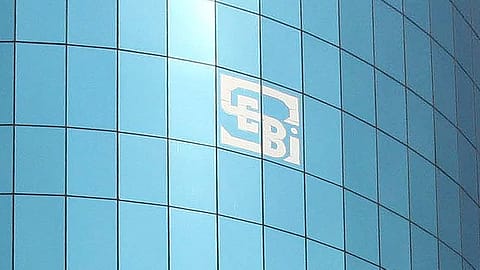Zerodha may discontinue zero brokerage due to SEBI circular: CEO Nikhil Kamath
The market regulator in its new circular mandated all market infrastructure institutions, like stock exchanges, to be "true to the label" in how charges are levied.

Zerodha founder and CEO Nikhil Kamath has said that the company plans to end the free brokerage structure and increase charges for futures and options (F&O) trades after markets regulator SEBI's latest mandate.
The capital market regulator in its new circular released on July 1 mandated all market infrastructure institutions, like stock exchanges, to be "true to the label" in how charges are levied. This circular is expected to have a significant impact on brokers, traders, and investors.
“These rebates account for about 10% of our revenues and anywhere between 10-50% of other brokers across the industry. With the new circular, this revenue stream goes away,” read a post by Zerodha founder and CEO Nithin Kamath on the social media platform X.
Stock exchanges charge the brokers a specific, slab-based transaction fee based on their total monthly turnover. A stockbroker is an intermediary which assists individual traders in buying or selling stocks on exchanges. Brokers receive rebates as their turnover increases since a higher turnover means a lower transaction fee. This practice is common across major global markets including the US. The difference between what the brokers charge the customer daily and what the exchange charges the broker at the end of the month is called a rebate.
With SEBI's new transparent uniform pricing mandate, brokers, traders, and investors will be impacted heavily. The new circular directs the market infrastructure institutions to prohibit discounts based on trading volumes or activity. This will cause brokers across the industry to tweak their pricing. The new rules will be in effect from October 1, 2024.
“We were one of the last remaining brokers that offered free equity delivery trades. We could do this because F&O trading revenues were subsiding equity delivery investors. Currently, 90% of our rebate revenue comes from options trading. However, with SEBI's new circular, brokers will no longer earn these rebates," Kamath added.
In 2023, Indian investors traded around 85 billion options, the highest in the world. SEBI discovered that 9 out of 10 F&O traders failed to make any profits making a staggering loss of Rs 1.1 lakh. SEBI set up a working group to address concerns about the steep rise in the rise of retail investors participating in options trading.
Recommended Stories
"The hope is that exchanges will pass on the benefit to customers by charging the lowest slab, minimising the impact of increased F&O brokerage," Kamath further said in a blog.
“A 100% passthrough of exchange transaction charges threatens to destabilise the discount brokerage business model,” said Tejas Khoday of FYERS, another Indian online stock broker platform.
The announcement led to the downturn of stocks of most stock broking firms. Stocks of Angel One are currently trading at 2,315.85 which plummeted by -1.59 %.
“If a certain MII charge is levied on the end client by members (i.e. stock brokers, depository participants, clearing members), it should be ensured by MIIs that the same amount is received by them. The charge structure of the MII should be uniform and equal for all its members instead of slab-wise irrespective of volume/activity of members,” the circular said. The regulator expects this move to benefit the end clients with the reduction of charges.
(INR CR)